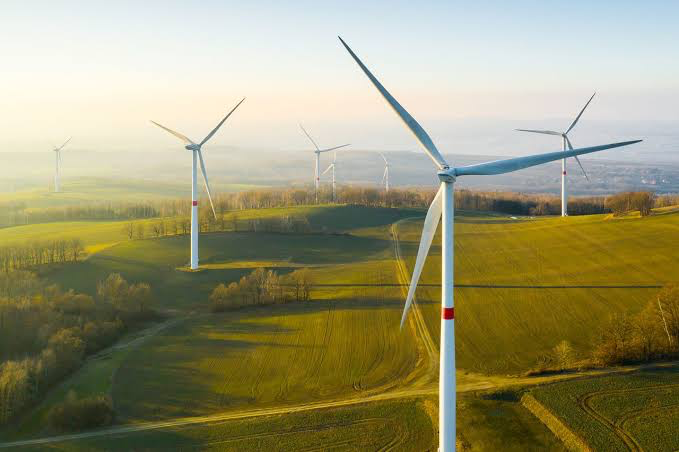British wind and solar farms could face unexpected charges when exporting clean power to continental Europe under the European Union’s new carbon border tax plan. This has sparked concerns within the UK energy industry, which fears the levy could penalize green energy producers and increase energy prices for consumers.
EU Carbon Border Tax Threatens UK Renewable Exports
The European Union’s Carbon Border Adjustment Mechanism (CBAM) aims to impose a CO2 emissions fee on imported goods like steel, cement, and electricity. The goal is to ensure a level playing field for European producers who face stricter environmental regulations. However, the current design of the CBAM has drawn criticism from the UK energy industry.
A key concern is that the CO2 fee for electricity would be calculated based on average and historical power generation emissions, unfairly penalizing clean energy sources like wind and solar that produce little to no emissions themselves.”It disincentivizes clean power in the UK at the moment in which we’re trying to ramp up provision of clean power, and it’s going to increase prices in northern Europe,” said Adam Berman, deputy director of industry group Energy UK.
Reduced Profits, Higher Prices, and Increased Emissions
Analysts warn that the extra cost of the levy could discourage British companies from exporting excess clean power to Europe during periods of low demand and high renewable generation. This could lead to curtailed renewable energy production and reduced profits for British firms.A study by Aurora Energy Research suggests that as much as 3 gigawatt hours (GWh) of renewable power generation could be curtailed by 2030 if the fee disincentivizes exports.
This is enough to power up to 2 million homes annually.Reduced access to cheap British electricity could also push European countries to rely more on coal and gas-fired power plants to meet their energy needs. This could have a negative impact on the environment, potentially leading to a rise in CO2 emissions.
Linking Carbon Markets or Exemption Criteria
The European Commission has acknowledged concerns about the CBAM’s impact on renewable energy exports. They have stated that renewable power producers can avoid the fee if they comply with certain criteria and prove their origin. However, industry figures say this could be difficult due to the anonymous nature of electricity trading across interconnectors.
Discussions are underway between British and EU diplomats to find a solution. Some industry groups are lobbying for a linking of the EU and UK carbon markets, which would exempt UK power producers from the carbon border tax.”The best way to deal with the CBAM and stop UK exporters paying a tax to the EU that could otherwise go into the UK budget, would be by having carbon market linking,” said Alistair McGirr, Group Head of Policy and Advocacy at UK power generator SSE.
However, neither the EU nor the UK has yet committed to this option. While the EU is open to linking its carbon market with others, it emphasizes that this must be a mutual decision. The outcome of these discussions will be crucial for determining the future of British green energy exports and the overall impact of the EU’s carbon border tax plan.
Source : Reuters



